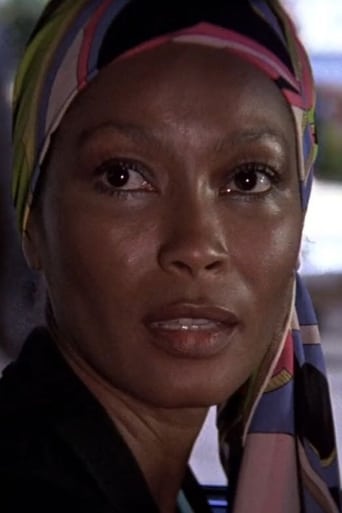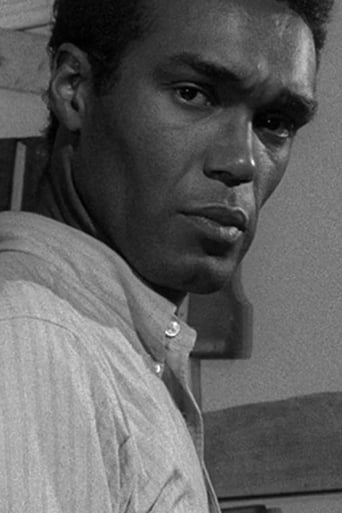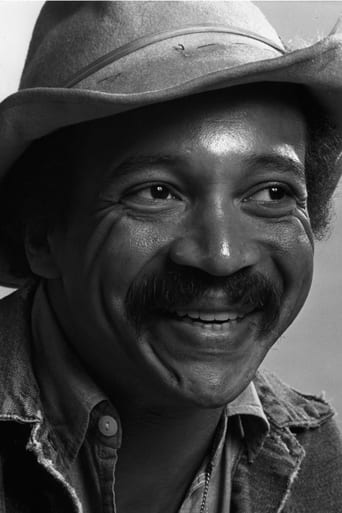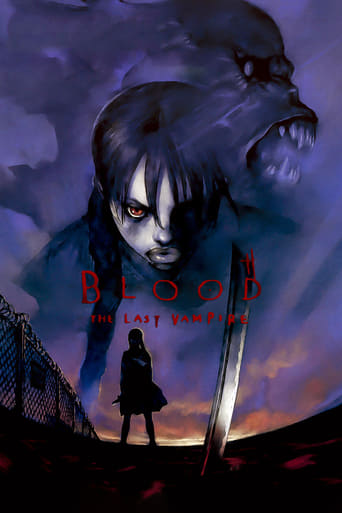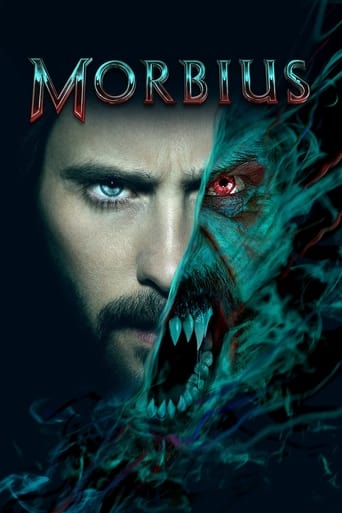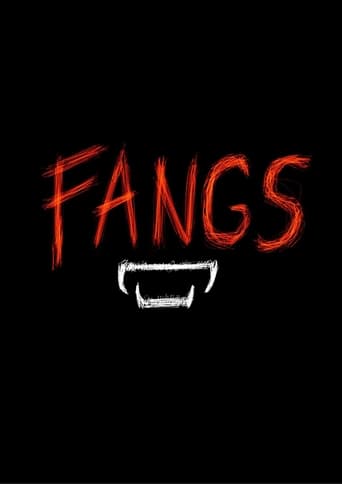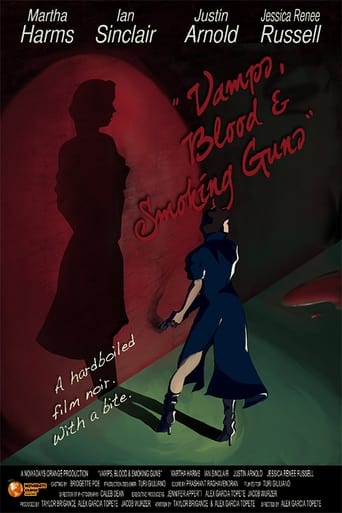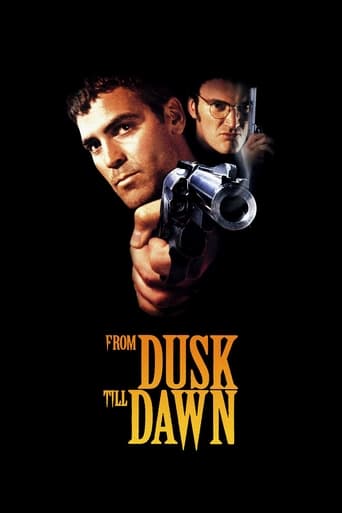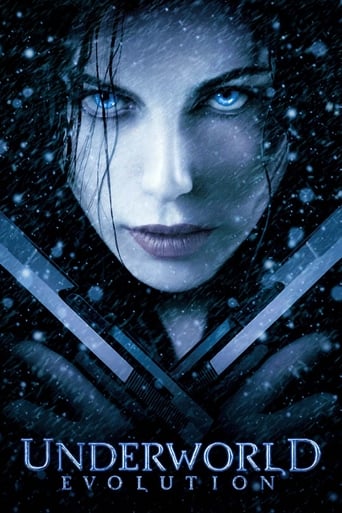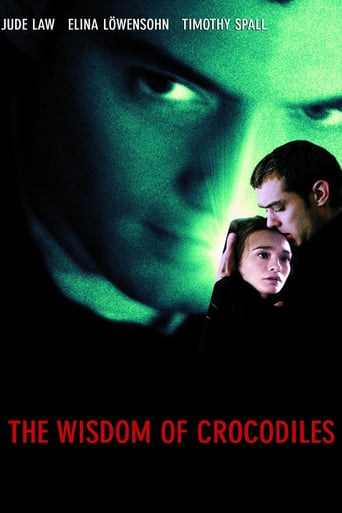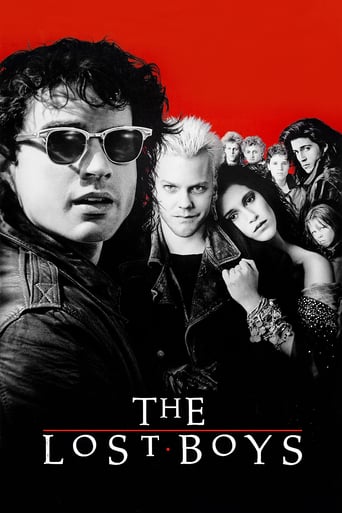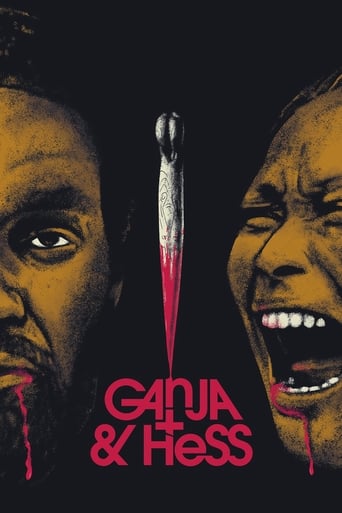
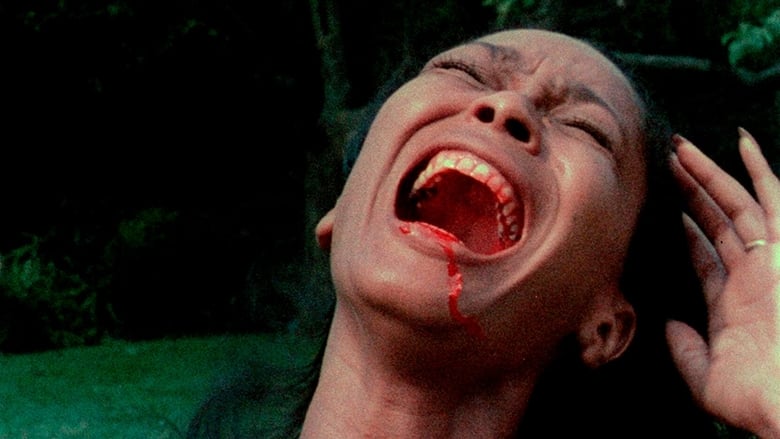
 Watch Now
Watch Now





Ganja & Hess (1973)
 Watch Now
Watch Now





After being stabbed with an ancient, germ-infested knife, a doctor finds himself with an insatiable desire for blood.
Watch Trailer
Cast


Similar titles
Reviews
Best movie of this year hands down!
Simply A Masterpiece
How sad is this?
The storyline feels a little thin and moth-eaten in parts but this sequel is plenty of fun.
After being stabbed with a ceremonial dagger but finding himself unable to die, a man tries to control his insatiable blood-lust while keeping himself safe from his new wife who grows curious about his strange activities.This is a truly abysmal effort that has very little elements that are enjoyable and wasn't all that entertaining at all. The main thing with this is that nothing happens at all in here and it's an endless repeat of boring blather about nothing in particular or endless looping of an admittedly-catchy tribal song and not much else, as the film's barely-there plot unfolds in such a confusing, mystifying manner that there's almost no way to ensure what's going on at all. That just makes the film seem endlessly long and excruciatingly boring, since we don't have anything to really get a grasp on at all beyond the few decent moments of eroticism and sensuality present in their romance with each other. That mostly comes along during the final half which is where the few moments of enjoyment come from with the final revelation of the curse forcing this into some decent areas, but overall, this one just isn't all that worthwhile.Rated R: Graphic Violence, Language, Nudity, strong sexual content and drug use.
In the history of Black cinema, Bill Gun's movie is certainly a bizarre oddity. It doesn't fit at all with the Blaxploitation films of the same period, nor is it in any conventional sense a horror film. It does address many recognizable aspects of Black culture (or, it might be more accurate to say, the "pop" culture version of it): the Baptist church, the gaudily-dressed pimp, the blonde-wigged whore, the gun play, the jive talk, the mystical back-to-Africa mythological hokum. However, its visual style owes more to Bergman (Hour of the Wolf) and Argento than to Van Peebles and others. This is a film about the corruptions and decadence of the Black bourgeoisie; before most folks even knew there was one. But this isn't the Cosby Show. Doomed from the outset--not because it doesn't have a striking visual style, it does--but because it failed to offer audiences, Black and White, the view of Black culture they crave, even today; the Black culture even Spike Lee invariably provides on cue. For this reason, a groundbreaking movie, and one worth another look and further re-evaluation. It has more than a hint of the Dorian Gray, of the knowingly camp, about it. Gunn makes it hard to tell how seriously to take the religious imagery and symbolism. If, however, a White director had made the scenes in the Black church--the behavior of the congregation as outlandishly over-the-top and "insane" as anything in the Dr. Hess household--he or she would surely have been accused of being racist. Gunn himself plays against Blaxploitation type: a somewhat effete intellectual, almost certainly homosexual, whose violence is ultimately entirely self-directed. The image of Black masculinity as vulnerably exposed, and painfully so, is perhaps more honestly revealed here than in any other "Black" film. Compared with this, even Lee only pussyfoots around the issue.
Bill Gunn was paid to make Blacksploitation movie, basically a knock off Blacula and instead made an insanely ambitious, lyrical, high art film called "Ganja And Hess", which happened to have an all black cast and involve vampires, though the v-word is never mentioned.One of the defining criterion of Blacksploitation cinema; a black cast working with white writers, directors and producers is absent in G&H. Bill Gunn wrote, directed, and stared in the film, where there are no white characters present anywhere at all (accept briefly in Hess' dreams/visions), eliminating the usual reference to "the man" as villain and planting the discussion singularly in the black community.There is nothing exploitative about any of this, it just happens to be a movie with a low-budget. In fact I think it's the best and most complex film about African American Christianity I've ever seen. Ganja and Hess is not that simple, to say it's spiritual on one hand or a critique on the other, is a matter of whether you prefer Ganja or Hess.Hess (Duane Johnson of Romero's original Night of the Living Dead) is a wealthy anthropologist studying the ancient Mythria tribe in Africa who takes on a new assistant named George (played by Gunn), who begins to appear more and more manic.Hess stops George's first suicide attempt, but George later inexplicably attacks him stabbing him with an ancient knife Hess keeps as a kind of tribal art on his bed stand. George then bathes ritualistically and commits suicide on his knees, naked with a gun shot to the chest.Hess quickly adjusts to his new thirst which is cued by an echoing African chanting and images of tribal ceremonies in a field.Hess drinks blood from a glass, an image later echoed in Abel Ferrara's "The Addiction", a similarly complex religious vampire film (and to think, Anne Rice said she couldn't write both at the same time). Ganja is George's wife fresh from Amsterdam, who knows his "crazy" tendencies, and asks to stay at Hess' home to wait for his return. Ganja is confident and direct where Hess is cool and coy. Ganja berates and insults Hess' butler Archie, only after implying Hess treats him coldly and impersonally. She gages his reaction and when she see's he isn't concerned proceeds to dominate Archie, and subsequently positioning herself as mistress of the house.The couple marry, and Hess seems genuinely in love, while Ganja is genuinely in love with her new position, and not in the least bothered by her belief that Hess killed George for some reason which to her doesn't need explaining. He loves her so much they have their second wedding as he sire's her with the Myrthrian dagger used on him.This scene is as ritualistic as the Church wedding that came before, only now Hess pronounces they will be free of guilt, fear, and sin before knifing her. The sex scenes recalls Alain Resnais' Hiroshima Mon Amour, consisting of ambiguous body close ups and glistening sweat, only at the end of Gunn's scene, when the lights come on, the sweat is revealed to be blood.Hess attends Wayman's church, perhaps put off by Ganja's sleeping with another man, or insisting that he was not dead when they took his body to the field, and in any event, experiences a religious awakening of his own in silent movements across his face like Dryer's "Passion of Joan of Arc".This complicates what had been a simple binary of African ritual/savagery/hedonism to Christian/restraint/morality/love. This binary is further complicated when Hess allows himself to starve to death sitting in the shadow of a cross, and the scene is juxtaposed with a flash black of George killing himself. "The cross is only an instrument of torture; it's the shadow of the cross that creates its meaning. Shadows conquer everything.", says Hess to Ganja during one of their chats.Neither is above reproach for Gunn though, one may be liberating to fault when over-indulgence becomes neurosis and eternal youth resembles eternal adolescence (George's character) while the other may only be repression of cultural traditions, class relations which amounts to ennui and stagnation.I don't think Gunn wants us to pick a side, the film is called Ganja and Hess after all, and neither one's self sacrificing nor the others self absorption seems definitive. "I feel like both a murderer and a victim" George says early on. The rest of the movie plays on this contradictory impasse; the horror of the film comes from the philosophical ambiguity resembling a visually driven "No Exit".Gunn is speaking directly to a black audience, his intended and studio mandated demographic, and though his themes are philosophically universal, they speak specifically to a newly radicalized post-Civil Rights black audience budding between calls for socially conscious realist Nationalism and Black Christian moralism; Hess and Ganja respectively.The images of the field become a place of burial (corpses) and of things past returning (the procession of the ancient tribe). The music by Wayman predicts Animal Collective's droned out psychedelic African tribal chants by thirty years. The rest of the score is upbeat 70's pop, soul, and gospel, all styles that cascade together in the church scene, when the non-digetic music, is reveled as the church band, and a principle structuring element for much of the editing.Ganja and Hess is at minimum a marginalized if not completely forgotten masterpiece of American cinema. It got a standing ovation at Cannes (where it was the only American film entered that year), and ensured no American producer would work with Bill Gunn on a theatrical film ever again. Bill Gunn's corpse is still locked in the cultural cellar, discovered from time to time, but easily (and tragically) ignored in favor of more profitable ventures.
To simply tag "Ganja & Hess" with a label of blaxploitation would be a serious understatement, as this is probably THE most ambitious 'black' film of entire 70's decade. The substance of the film covers horror, but you really wouldn't say so, as there's no explicit violence or bloodshed on screen, and the whole production relies on its dark and moody atmosphere. It's a really weird and ultra-slow film, definitely not suitable viewing in case you are looking for barbaric 70's horror. I can't say I liked it very much because, honestly, it's a super-pretentious film that goes on for far too long without actually handling about anything. I appreciate smart dialogs and subtle atmosphere as much as the next guy, but a synopsis claiming to revolve on blood addiction and passionate murder eventually must show something, right? Duane Jones ("Night of the Living Dead") gives a marvelously languid performance as a doctor who suffers from an insatiable desire for human blood, brought onto him after being stabbed with an ancient cursed dagger. Shortly after, when his assistant (played by Bill Gunn, the director) commits suicide, Dr. Hess comes into contact with his widow Ganja and sweeps her along in his strange and depressing 'vampire' universe. The acting performances and filming locations form a potent mix, but the pace of the film is truly soporific. Bill Gunn artsy attempts to disguise the lack of budget with various ingenious camera angles and sound effects, but he still can't hide the fact there's no suspense or involvement in the screenplay. Perhaps the heavily cut version "Blood Couple" is more endurable. I can only imagine some of the dialog is cut in that version, as there's no gore or sleaze to censor. It's an interesting film considering its historical background, but it doesn't hold any entertainment value.


